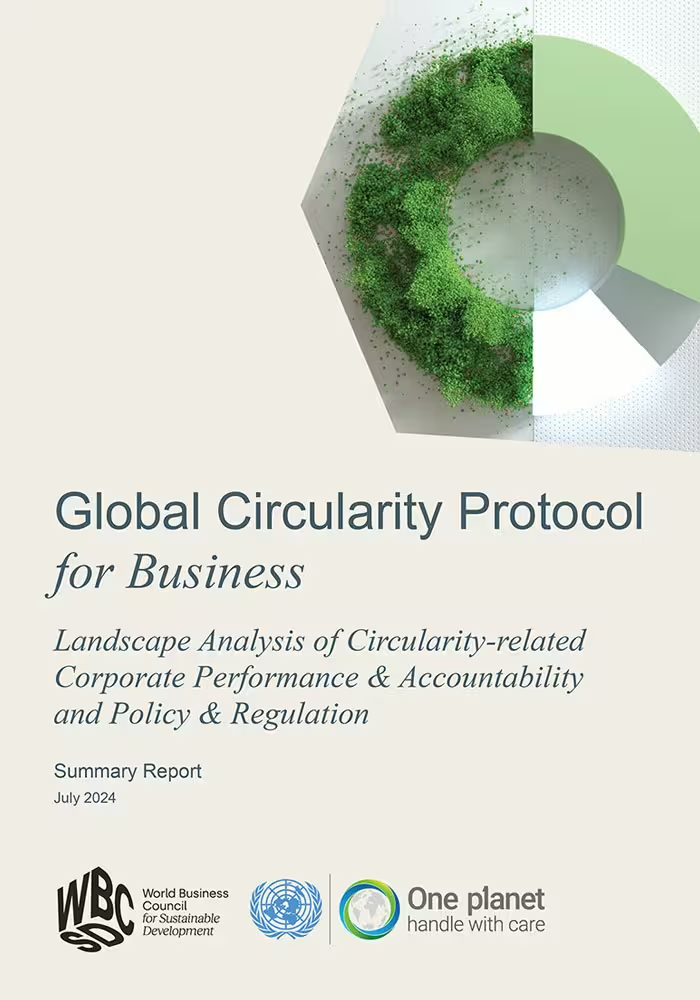This report provides an in-depth analysis of the current landscape and highlights the gaps and opportunities within the circular economy to inform and guide future business practices and policy frameworks.
Integrating circular economy practices into business models is crucial for driving systemic change and promoting sustainable resource management. However, businesses encounter challenges in measuring and disclosing these efforts due to a lack of standardized metrics and frameworks, which complicates target setting, benchmarking, and compliance amidst a rapidly evolving and inconsistent regulatory landscape.
To address these challenges, existing legal frameworks and international standards must be realigned to support a circular economy, necessitating a unified global framework that promotes cross-sector collaboration, efficient capital allocation, and informed policy development.
The Global Circularity Protocol for Business (GCP), a pioneering initiative led by the World Business Council for Sustainable Development (WBCSD) in collaboration with The One Planet network (OPN), aims to be this framework. The GCP will help guide companies in target-setting, measuring, reporting and disclosing progress on resource efficiency and circularity, combined with comprehensive and targeted policy guidance to accelerate the shift towards circular business models and a regenerative economy.
The GCP has four strategic workstreams; (1) Circular Impact Analysis, (2) Corporate Performance and Accountability System (CPAS) for Circularity, (3) Policy Framework for Circularity, and (4) Science-informed targets for Circularity; and aims to deliver the first Protocol version by 2026. The workstreams receive strategic and technical guidance from Policy, Business, and Independent Scientific Advisory Committees, and Technical Working Groups. Deloitte Consulting AG and Circle Economy Consulting are providing ongoing technical support for Workstream 1.
This report marks the beginning of a series of outputs from the GCP, scheduled for release over the next 18 months. The aim of this landscape analysis is to identify gaps and opportunities in the current circular ecosystem that can help inform the design of the GCP.
In particular, this report identified the following themes as part of the Landscape Analysis of circularity-related Corporate Performance & Accountability (CP&A):
- Circularity can be leveraged to achieve a sustainable and just transition
- A resource-centric view with a focus on the full life cycle, rather than just on end-of-life, is fundamental to resource value retention and maximization
- Organizational enablers can help to accelerate the transition
- Harmonized valuation and risk methods are necessary to support the financing of circular businesses
- Consistency and harmonized reporting are critical for value chain transparency
The Landscape analysis of Policies and regulations revealed that:
- Strategic policy levers enable the achievement of circularity objectives
- Broader ecosystem enablers complement the levers and support the transition
Eager to learn more about the key challenges, opportunities, and design recommendations for the GCP? Discover all this and more in the Landscape Analysis and its Summary Report!

